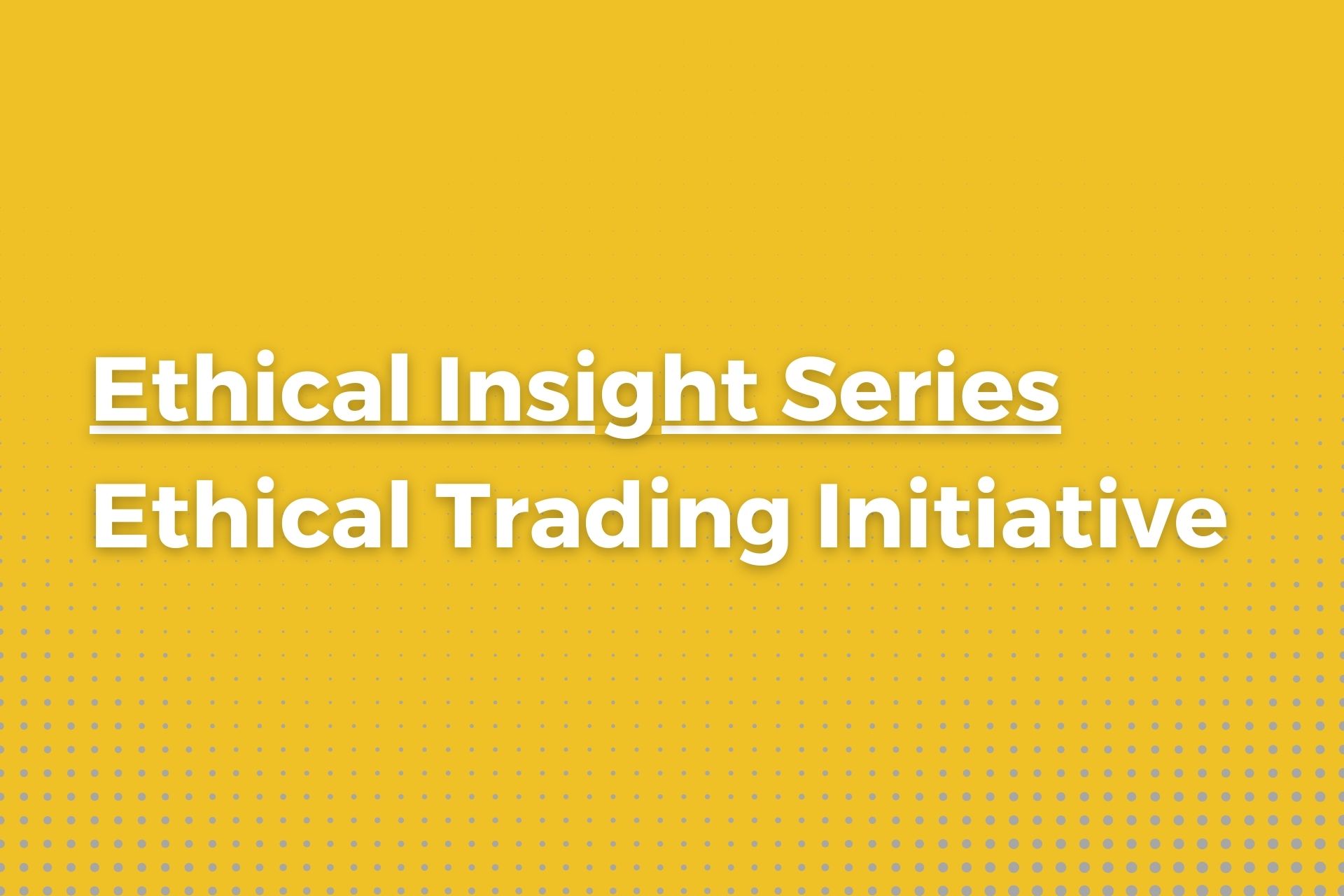
On Tuesday 23rd, the Ethical Trade Initiative (ETI) held their Ethical Insight Series focused on due diligence at their offices in Farringdon. The forum included representatives from NGOs, think tanks, supermarkets and international organisations. Peter McAllister, Executive Director of ETI and Steve Gibbons from Ergon chaired the event and started off by sharing best practices and the process of due diligence in the business world.
Due Diligence
The introduction of the Modern Slavery Act in March includes the Transparency in Supply Chain (TISC) clause requiring businesses to enforce appropriate policies that promote a hostile environment for modern slavery and human trafficking. Additionally, the UN Guiding Principles on Business and Human Rights (UNGP) have increased the pressure on businesses to adopt practices that prevent and address corporate-related human rights violations. This document outlines the responsibility of businesses to understand the human rights risks when carrying out activities and creating a procedure to avoid these risks from occurring. This should be modelled along the UN Protect, Respect and Remedy Framework and Guiding Principles that include:
- Identifying potential impacts
- Act, prevent or mitigate
- Identify actual impacts
- Act, remedy and prevent recurrence*
There was a strong view that businesses should open up the scope for human rights due diligence. Whilst both speakers highlighted the importance of acting, they suggested that businesses should look to understand and assess the risks first before establishing strategies.
Companies can assess the risk by focusing on mapping the sector they work in and carrying out research on their supply chains to determine the level of transparency. By placing more emphasis on where and how they source their products, businesses can increase their human rights impact. Once areas have been identified, a sustainable structure can then be established to address the problem.
Empowering Workers
The speakers highlighted that the implementation of ethical trade within companies requires an upstream and downstream approach. The process of collective bargaining and freedom of association should focus on more than just acceptance; it should also aim to empower workers by influencing and supporting them to practice these rights within the workplace. Influencing systemic change requires a continuous surge of progress and businesses should prioritise this when establishing a due diligence process. Reflecting on internal and external practices will also promote a more holistic approach that will eventually lead to robust sustainable models that have the potential to be adopted across all supply chains.
Collaboration
By implementing a process of risk, impact and action, businesses can contribute to best practices and improve the level of collaboration within the industry. Acknowledging the impact of the systems currently in place as well as sharing results and testing analysis are critical steps that will allow a continuous re-development of ethical trade practices.
Collaboration between businesses, NGOs and government bodies is therefore key to creating a successful movement that will end human trafficking and modern slavery. Individual actions alone do not have the power to push forward impact; accordingly there is a need for more integration and coordination that will allow a stronger, more united movement.
Changing Perceptions of Risk
There was agreement amongst most of the participants that businesses need to move away from their fear of human rights. Companies usually have strong teams in place that can assess risks and have the ability to overcome potential impact on their supply chains. There needs to be a shift in the corporate perception of risk so that businesses can take active steps to address the problem rather than shift liability onto others.
Stakeholders are becoming increasingly aware of businesses human rights impact, which suggests that now more than ever is the time to take action. If businesses ignore the importance of ethical trade, they could face serious difficulties, including the high cost of human rights litigation, operational delays and interference, damage to reputation and a loss of brand loyalty. However, creating benchmarks within the sector will influence shareholder loyalty, attract more ethical investors and improve staff recruitment and retention.**
Again, the process of mapping human rights risks will provide important insights that will outline the major areas that require input rather than immediately tackling the whole supply chain. Identifying this will provide companies with a sense of confidence and promote more active participation across the board over time.
Training
Organisations across the sector should invest in training programmes that will assist them in evaluating their due diligence impact. More importantly this gives workers a platform to voice their opinions regarding ethical trade. ETI offers a workshop for buyers, and runs a number of trainings, such as the essentials of ethical trade, workers’ voice and representation and the ETI Base Code and UK Law among others.
On a separate note, many participants found that training on human trafficking and slavery is also required across all media platforms. Journalists can often sensationalise issues relating to human trafficking and slavery portraying an inaccurate picture of the situation. Continuing in this vein contributes to a reinforcement of stereotypes and can often lead to an oversimplification of the problem. There needs to be an understanding across all sectors that systemic change can take place and that all relevant parties can work together to influence more ethical business.
This was an interesting event for us since we are just now venturing into the business and human rights space. We hope others, after reading this, will consider doing the same. Please feel free to reach out to us if you feel there is scope for us to work together on this: [email protected]
* http://www.right2respect.com/wp-content/uploads/2015/02/HRDD-CorpExecGuide2015.swf
** http://www.right2respect.com/wp-content/uploads/2015/02/HRDD-CorpExecGuide2015.swf


